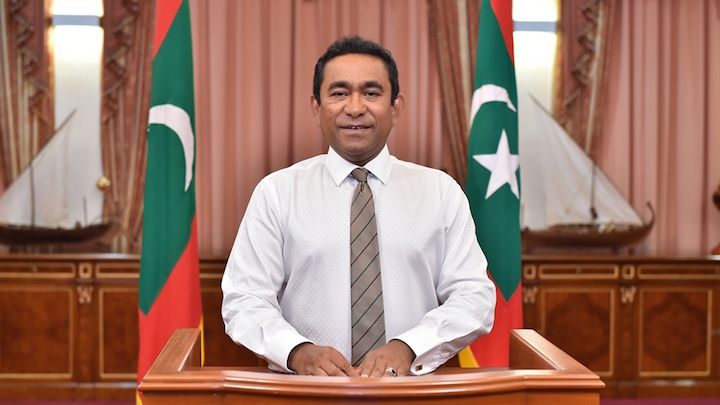Yameen praises Trump’s non-intervention foreign policy
“If [Trump] acts in accordance with this policy, the world will become much more peaceful than at present,” Yameen said. “Otherwise what we have seen so far is that some powerful imperialist has some kind of interest in anything that happens anywhere in the world.”

10 Nov 2016, 09:00
The Maldivian government draws “happiness and satisfaction” from Donald Trump’s victory in the US presidential election, President Abdulla Yameen has said, expressing hope that the new administration will pursue a non-intervention foreign policy.
Speaking at a function held Wednesday afternoon to welcome new members to the ruling party, Yameen lauded Trump’s stance that the US “cannot be the policeman of the world”.
“Every country should be a state with full sovereign power and independence. Someone else shouldn’t spread around the world to police everything we do,” he said.
“So if the president that has been elected now acts in accordance with this policy, the world will become much more peaceful than at present. Otherwise what we have seen so far is that some powerful imperialist has some kind of interest in anything that happens anywhere in the world. But if such powerful imperialists stop policing the world, the people of the world can live the way they want.”
Become a member
Get full access to our archive and personalise your experience.
Already a member?
Discussion
No comments yet. Be the first to share your thoughts!
No comments yet. Be the first to join the conversation!
Join the Conversation
Sign in to share your thoughts under an alias and take part in the discussion. Independent journalism thrives on open, respectful debate — your voice matters.




